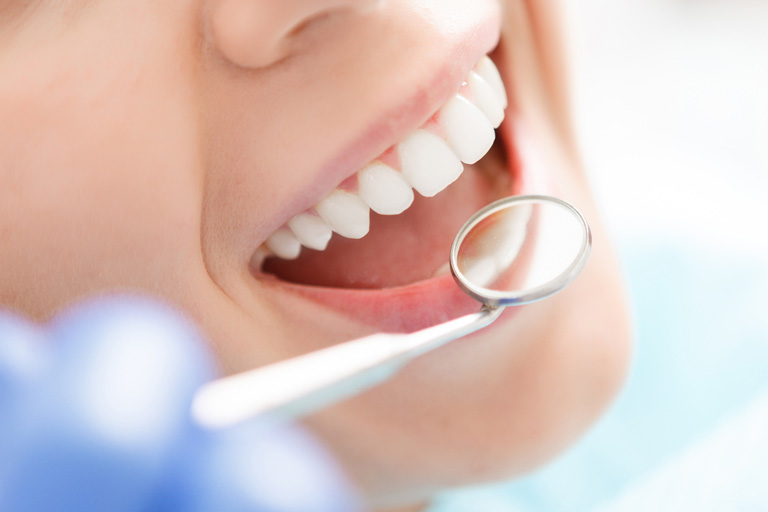Gum Disease and Gum Health: Symptoms, Treatments, and FAQs

One of our mantra’s at Bay House Dental Practice and something we tell our patients all the time is maintaining optimal gum health is essential for a healthy smile. Gum disease, also known as periodontal disease, is a common dental problem that affects millions of people worldwide. In this blog, we’ll explore the symptoms, treatments, and frequently asked questions related to gum disease and gum health. If you’re a dental patient in Cardiff seeking information on these subjects, you’ve come to the right place.
Symptoms of Gum Disease
- Red, swollen, or tender gums.
- Bleeding gums, especially during brushing or flossing.
- Receding gums, causing teeth to appear longer.
- Persistent bad breath or a bad taste in the mouth.
- Loose or shifting teeth.
- Changes in your bite or the way your dentures fit.
- Pus between gums and teeth.
- Formation of deep pockets between gums and teeth.
- Changes in the alignment of teeth.
Treatments for Gum Disease
- Professional Dental Cleaning: A thorough cleaning by a dental professional can remove plaque and calculus buildup from the teeth and gums. If you’re looking for a dental hygienist in Cardiff then book an appointment with our fantastic dental hygiene team at Bay House Dental Practice.
- Scaling and Root Planing: This deep cleaning procedure is used to remove tartar and bacteria from below the gumline. In some cases we’ll apply fissure sealants to seal off pits and grooves in your teeth where bacteria can grow and cause tooth decay.
- Antibiotics: In some cases, antibiotics may be prescribed to treat infection or control bacteria.
- Gum Surgery: Advanced cases of gum disease may require surgical interventions, such as flap surgery, bone grafting, or tissue regeneration.
Frequently Asked Questions about Gum Disease and Gum Health
- What is gum disease?
Gum disease, also known as periodontal disease, is a bacterial infection that affects the gums and surrounding tissues. It’s caused by plaque buildup on the teeth, leading to inflammation and potential damage to the gums and bone supporting the teeth.
- What are the symptoms of gum disease?
Common symptoms of gum disease include red, swollen, or tender gums, bleeding gums during brushing or flossing, persistent bad breath, receding gums, loose or shifting teeth, and changes in bite or tooth alignment. - How is gum disease diagnosed?
Gum disease can be diagnosed by our dentist or periodontist through a comprehensive examination. We’ll assess the health of your gums, measure the depth of the gum pockets around each tooth, and may take X-rays to evaluate the condition of the bone supporting the teeth. - What are the risk factors for gum disease?
Several factors can increase the risk of developing gum disease, including poor oral hygiene, smoking or tobacco use, genetics, hormonal changes (such as during pregnancy or menopause), certain medications, diabetes, and a weakened immune system. - Can gum disease be prevented?
Yes, gum disease can be prevented with good oral hygiene practices. This includes brushing your teeth at least twice a day, flossing daily, using mouthwash, and visiting your dentist regularly for professional cleanings and check-ups. Avoiding tobacco use and maintaining a healthy lifestyle also contribute to gum health. - What is the treatment for gum disease?
The treatment for gum disease depends on its severity. In the early stages, professional cleanings, improved oral hygiene practices, and lifestyle changes may be sufficient. In more advanced cases, treatments such as scaling and root planing (deep cleaning), antibiotics, gum surgery, or laser therapy may be necessary. - Can gum disease affect overall health?
Yes, gum disease has been linked to various systemic health conditions. Research suggests that gum disease may increase the risk of heart disease, stroke, diabetes, respiratory problems, and complications during pregnancy. Maintaining gum health is important for overall well-being. - Are there home remedies for gum disease?
While home remedies cannot substitute professional treatment, they may help alleviate symptoms or support gum health. These include rinsing with warm saltwater, using antibacterial mouthwashes, applying a cold compress to swollen gums, and maintaining a balanced diet rich in vitamins and minerals. - Can gum disease be reversed?
In its early stages (gingivitis), gum disease can often be reversed with proper treatment and improved oral hygiene practices. However, in more advanced stages (periodontitis), the damage to the gums and bone is usually permanent but can be managed to prevent further progression. - How often should I visit the dentist to maintain gum health?
We generally recommended to visit the dentist every six months for regular check-ups and professional cleanings. However, the frequency may vary depending on individual oral health needs. Your Bay House dentist can provide personalized recommendations based on your specific situation.
Gum disease is a prevalent oral health condition that requires attention and proper treatment to prevent further complications. Recognizing the symptoms, such as bleeding gums, bad breath, or loose teeth, is crucial in seeking timely dental care. By maintaining a good oral hygiene routine, including regular brushing, flossing, and professional cleanings, you can significantly reduce the risk of gum disease. However, if you suspect gum disease or experience any of the symptoms mentioned, it’s essential to consult your dentist promptly.
Bay House Dental Practice in Cardiff provide expert guidance and treatments for gum disease. By taking proactive measures and prioritizing gum health, you can achieve a beautiful and healthy smile for years to come. Remember, prevention and early detection are key when it comes to gum disease, so don’t hesitate to reach out to contact us if you have any concerns.


